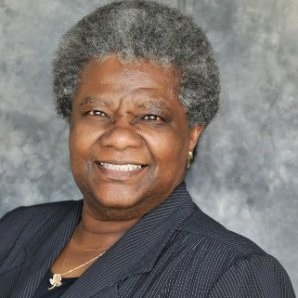Billie’s Blog: Independent or Emancipated?
Fifteen days separate June 19th from July 4th on the calendar. The significant events of these two dates, July 4, 1776, and June 19, 1865, took place eighty-eight years, eleven months, and fifteen days apart. July 4th was hailed as Independence Day. June 19th was dubbed Emancipation Day, also known as Juneteenth. The two terms are separate, and they are not equal. On Independence Day, the United States of America extricated itself from the rule of Great Britain and became a sovereignty in its own right. All thirteen colonies signed the Declaration of Independence. Conversely, the Emancipation Proclamation was an Executive Order signed by President Abraham Lincoln. The document freed only those slaves held in Union states, making those men eligible to fight in the Civil War. The Proclamation, delivered to Galveston, Texas, over two and a half years after its signing on January 1, 1863, was as much a war and political strategy rather than a strategy for slave freedom.
While the two documents functioned differently, there were similarities in form: The signers of both were wealthy white men who owned land, livestock, crops, and people whom they regarded as chattel property, livestock, and currency. The Emancipation Proclamation did not consider any input from the enslaved people the document stated it freed. According to Public Broadcasting System (PBS): The Emancipation Proclamation did not free all slaves in the United States. Rather, it declared free only those slaves living in states not under Union control. William Seward, Lincoln’s secretary of state, commented, “We show our sympathy with slavery by emancipating slaves where we cannot reach them and holding them in bondage where we can set them free.” Lincoln was fully aware of the irony, but he did not want to antagonize the slave states loyal to the Union by setting their slaves free.
The proclamation allowed black soldiers to fight for the Union — soldiers that were desperately needed. It also tied the issue of slavery directly to the war.
The Declaration of Independence does not seem to be a declaration of absolute freedom, just freedom from chattel slavery. Enslaved men were released by their holders without financial resources, property, formal education, or vocational training. Then, they were trained in the violence of warfare, Abraham Lincoln’s warfare. We have no immediate information about the freedwomen and children, some of whom had formed family units with the men. Once again, Black families were torn asunder in the name of the whims of wealthy white men. Also, while disentangling Black people from the horrors of slavery, the Emancipation Proclamation fanned the flames of anger, hatred, and fear of white people, especially those who were forced to release their slaves.
Two-hundred-forty-nine-years after the signing of the Declaration of Independence, the United States of America remains a sovereign country. One-hundred-sixty-years after the signing of the Emancipation Proclamation, African American Descendents of Slaves still are not free. You see, emancipation does not follow a natural trajectory to independence, then to freedom. America is free to decide in the country’s best interests. Black people do not have, and have never had, that freedom. Everything about our lives is dictated to us—where we live, where we worship, what jobs we hold, what our income should be, the education we receive, etc.
July 4th is rightfully celebrated as a day of joy. People hold parades, wave flags, host neighborhood picnics, and shoot firework displays. June 19th, also known as Juneteenth, is an equally rightful day of celebration. The holiday is a day of remembrance of the experiences and sacrifices of our forebears, and our resilience, and our tenacity as a people to never let go of the dream of possibility in our hearts, despite daunting obstacles that remain in our paths, and new ones that pop up daily.
Freedom is not a one-day, one-time proposition. You cannot make a bowl of potato salad and be done until next year. What are you doing every day to nurture your freedom and the freedom of others? Do you fear the freedom of others will harm your freedom or the freedom of people you love? What are your fears about what will happen if someone different from you moves into your neighborhood or joins your family or religious community? Think about other fears you may have about people different from you. How can you bridge the chasm between you and “othered” people and begin to communicate? Perhaps you could start by inviting them over to share a bowl of your award-winning potato salad.
Billie Wade is a gregarious introvert whose primary interests are writing, lifelong learning, personal development, and how we all are affected by life’s vagaries.
Issues facing Black people, women, the LGBTQ community, and aging adults are of particular concern to her. She enjoys open-hearted dialogue with diverse people. The opinions expressed here are her own.

